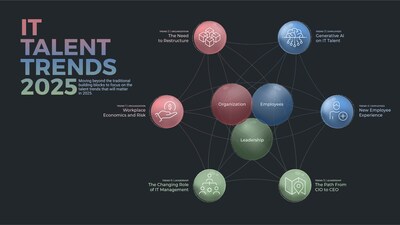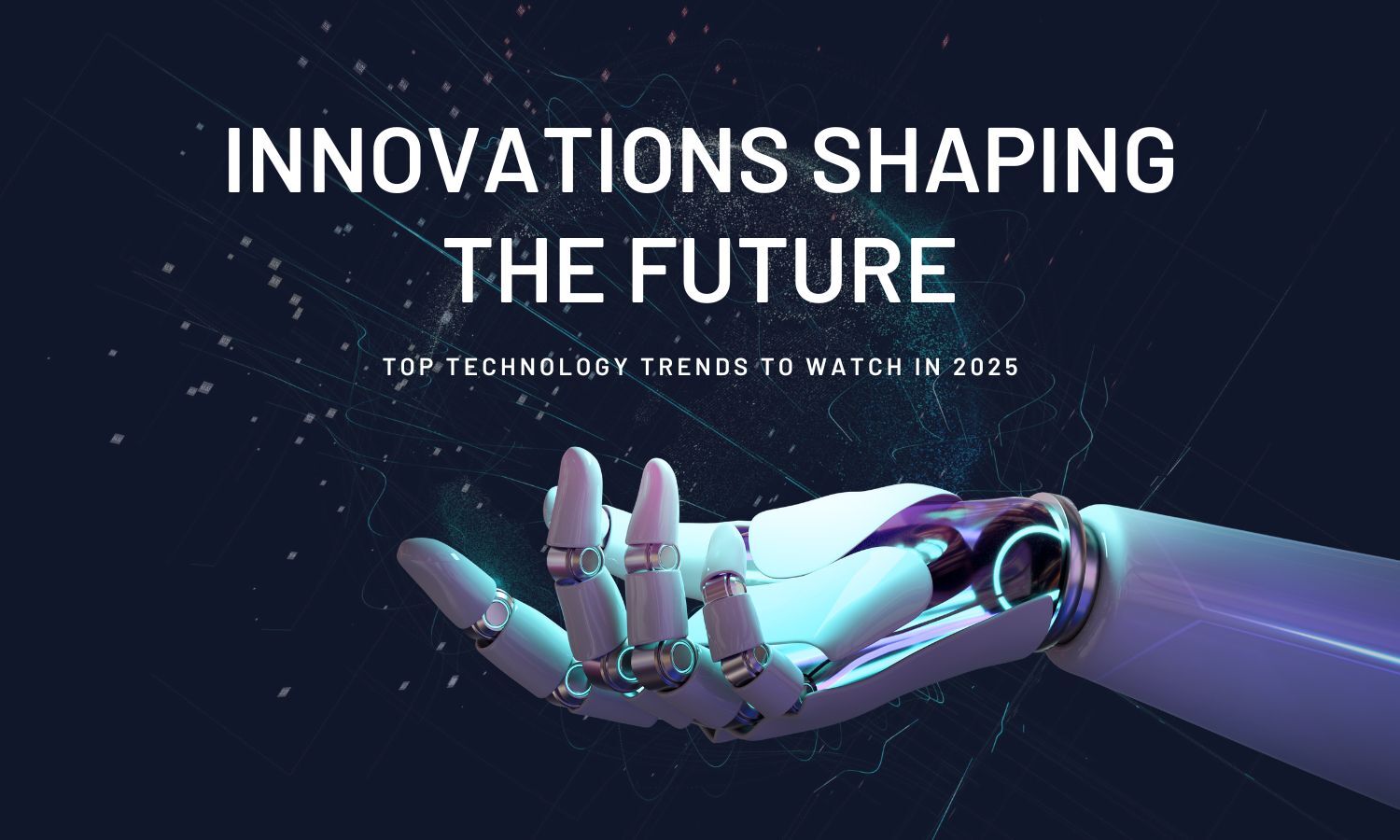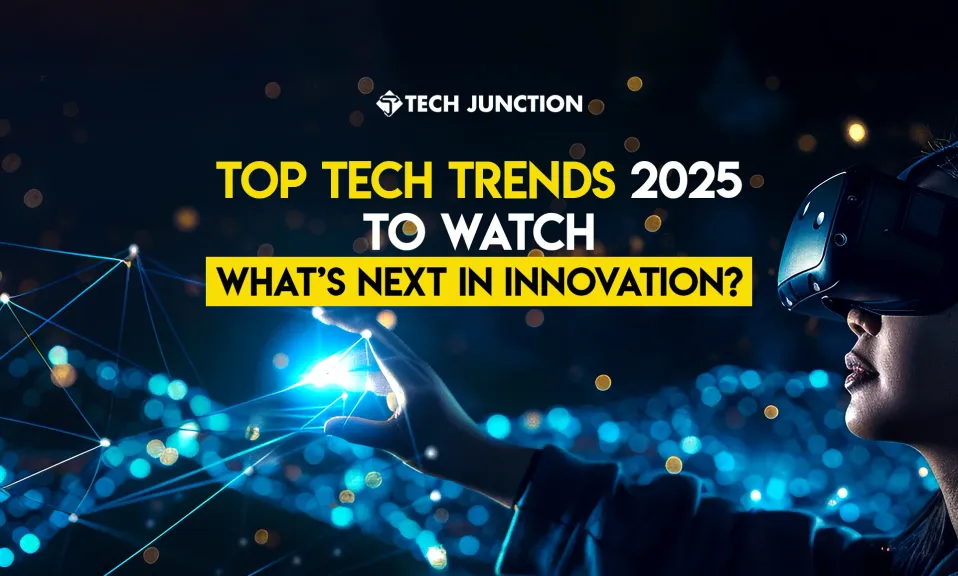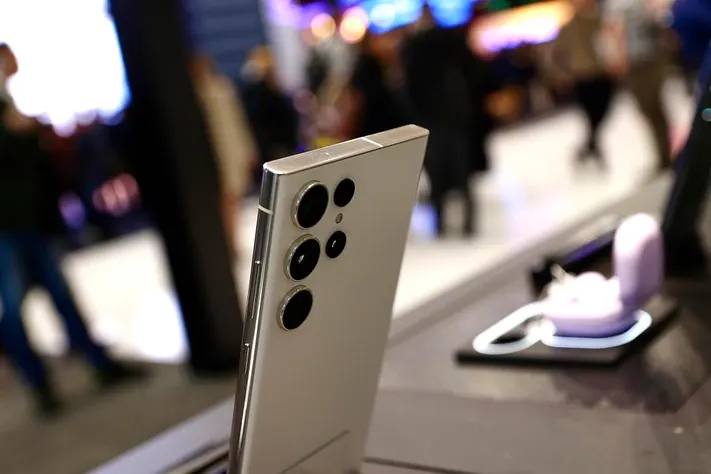“`html
Navigating the Future: Top Technology Trends for 2025
Estimated reading time: 10 minutes
Key Takeaways
- Technological evolution is accelerating, making it crucial to stay informed about upcoming shifts.
- 2025 is anticipated to be a pivotal year for innovations moving from labs to widespread adoption.
- Artificial Intelligence (AI), Quantum Computing, and cross-industry transformations are key areas to watch.
- These trends are not just incremental but are set to fundamentally reshape how we live and work.
- Staying ahead of these trends is essential for both individuals and businesses to thrive.
Table of contents
- Navigating the Future: Top Technology Trends for 2025
- Key Takeaways
- The Unstoppable AI Revolution
- Practical AI Applications Across Industries
- Generative AI: Transforming Content and Creativity
- Agentic AI: The Future of Autonomous Systems
- Quantum Computing: A Paradigm Shift
- Cybersecurity in the Age of AI
- Sustainable Technology and Computing
- The Evolution of Smartphones and Wearables
- Next-Generation Connectivity: 5G and Beyond
- Immersive Experiences: AR, VR, and Spatial Computing
- The Rise of Web3 and Decentralization
- Frequently Asked Questions
The relentless march of technological progress is not slowing down; in fact, it’s accelerating. As we approach 2025, it’s becoming increasingly vital for individuals and businesses alike to understand the burgeoning trends that will shape our future. This post is your essential guide to 2025 tech, diving deep into the top technology trends 2025 that are capturing the attention of global experts and analysts. We’ll explore how innovations in Artificial Intelligence, Quantum Computing, and various other fields are set to fundamentally reshape industries and our daily lives. Prepare to be informed, as the future is not just coming, it’s being built right now, and understanding these shifts is key to staying competitive and relevant.
The pace of innovation is astounding, with many nascent technologies transitioning from theoretical concepts and laboratory experiments to practical, widespread applications. 2025 is poised to be a landmark year for this transition. We are witnessing an unprecedented surge in advancements across critical sectors like Artificial Intelligence, where its applications are becoming more sophisticated and integrated into everyday life. Alongside AI, Quantum Computing is on the cusp of unlocking computational power previously unimaginable, promising to solve problems that are currently intractable. These advancements, coupled with broad cross-industry transformations, are not mere incremental updates; they represent a paradigm shift in how we approach problem-solving, efficiency, and innovation. The transformative nature of these trends cannot be overstated; they are set to fundamentally reshape how we live, work, and interact with the world around us.
The Unstoppable AI Revolution
Without a doubt, Artificial Intelligence will continue its reign as the dominant force in technological discussions throughout 2025. The AI impact on technology 2025 is profound, driving real-time automated decision-making and enabling comprehensive automation across a multitude of sectors. AI’s ability to process vast amounts of data, identify patterns, and execute tasks with remarkable speed and accuracy makes it indispensable for modern businesses and societies. Its influence spans from optimizing complex industrial processes to personalizing user experiences, solidifying its role as a cornerstone of future innovation. The continuous development and adoption of AI technologies underscore a significant shift towards a more automated and data-driven world. This revolution is characterized by its pervasive nature, touching nearly every aspect of technological advancement and application. As AI systems become more sophisticated, their capacity to learn, adapt, and perform increasingly complex tasks will only grow, further cementing their importance in the technological landscape of 2025 and beyond. The ongoing research and development in areas like machine learning, deep learning, and natural language processing are paving the way for AI to tackle challenges that were once considered insurmountable.

The practical applications of AI are already widespread and continue to expand at an incredible pace. In financial services, for instance, AI is instrumental in streamlining complex operations like payment processing and significantly enhancing fraud detection capabilities. Beyond finance, generative AI is emerging as a truly revolutionary force, transforming content creation workflows, including video production, and dramatically improving customer interactions. This technology is democratizing creativity, allowing for the rapid generation of diverse content formats. Furthermore, AI is set to redefine user experiences on personal devices, with upcoming smartphones like the iPhone 16 and Samsung Galaxy Z Fold 6 expected to integrate advanced AI features, offering unprecedented personalization and utility. The integration of AI into business operations is also a critical trend, with enterprises focusing on enterprise AI adoption to drive efficiency and innovation. However, this widespread adoption also brings challenges, including the need for robust AI adoption strategies and careful consideration of ethical AI deployment. Agentic AI, which focuses on AI systems acting autonomously to achieve goals, is also gaining traction, promising to revolutionize business workflows and operational efficiency, particularly in areas like robotics. The potential applications are vast, from enhancing marketing strategies with AI marketing tools to revolutionizing creative work with generative AI. This broad impact is driving significant investment in AI research and development, positioning it as a key driver of digital transformation.
Practical AI Applications Across Industries
AI’s impact extends far beyond mere automation; it is a catalyst for innovation across diverse industries. In healthcare, AI is revolutionizing diagnostics and drug discovery, leading to more personalized and effective treatments. For example, AI advancements in precision medicine are enabling tailored healthcare plans based on individual genetic makeup and lifestyle. In environmental science, AI is being deployed to develop solutions for climate change mitigation, optimizing energy consumption and predicting environmental shifts. The continuous stream of AI breakthroughs, as seen in publications covering October 2025 AI news and trends, highlights the rapid evolution of this field. From improving the accuracy of AI camera technology in smartphones to developing more intuitive user interfaces, AI’s practical applications are shaping the products and services we use daily. Businesses are increasingly leveraging AI for optimizing business operations and gaining competitive advantages. This pervasive integration signifies a fundamental shift towards intelligent systems that augment human capabilities and drive efficiency. The ongoing development of AI models, such as those discussed in relation to Apple Intelligence and Google Pixel AI features, demonstrates a commitment to embedding intelligence at the core of consumer technology.

Generative AI: Transforming Content and Creativity
Generative AI is rapidly redefining the landscape of content creation and creative industries. Tools powered by generative AI are enabling the creation of text, images, music, and even video content with unprecedented speed and ease. This technology is not just about efficiency; it’s about unlocking new forms of creativity and enabling individuals and businesses to produce high-quality content at scale. For marketers, AI-powered marketing tools offer personalized campaigns and data-driven insights. The ability to generate realistic and novel content means that industries from entertainment to advertising will see significant disruption. Understanding how generative AI changes creative work is crucial for professionals in these fields. The advancements in generative AI in 2025 are expected to bring even more sophisticated tools to the market. The ease with which generative AI can produce diverse content, from marketing copy to complex code snippets, is a testament to its transformative potential. Companies are exploring how to integrate these tools into their workflows to enhance productivity and foster innovation, as highlighted by discussions around AI content creation guides and best practices. This surge in AI-generated content necessitates a re-evaluation of creative processes and intellectual property. The trend towards AI-generated content is likely to accelerate, impacting how we consume and create media.

Agentic AI: The Future of Autonomous Systems
Agentic AI represents a significant evolution in artificial intelligence, focusing on creating AI systems that can autonomously pursue goals and perform complex tasks. Unlike traditional AI models that are often reactive, agentic AI systems are proactive and capable of independent decision-making and action. This shift towards autonomous systems is poised to revolutionize numerous fields, from robotics and autonomous vehicles to personalized digital assistants. The ability of agentic AI to manage complex workflows and interact with the environment in a goal-oriented manner opens up new possibilities for efficiency and problem-solving. Businesses are increasingly exploring agentic AI trends for 2025, recognizing its potential to automate intricate business processes. The distinction between agentic AI and generative AI is crucial, as each addresses different facets of AI capabilities. Agentic AI systems are designed to understand context, plan actions, and adapt to changing circumstances, making them ideal for tasks requiring a high degree of autonomy. The development in this area is rapid, with breakthroughs in agentic AI and robotics signaling a future where intelligent agents play a more prominent role in our lives and industries. The integration of agentic AI into business workflows, as discussed in relation to revolutionizing business with agentic AI, promises significant productivity gains. These systems are being developed to handle tasks ranging from managing smart home devices to complex logistics and even scientific research, showcasing the versatility and power of autonomous AI.

Quantum Computing: A Paradigm Shift
Quantum computing represents a fundamental leap forward in computational power, promising to tackle problems currently intractable for even the most powerful supercomputers. By leveraging the principles of quantum mechanics, such as superposition and entanglement, quantum computers can perform calculations at speeds and scales previously unimaginable. This technology holds the potential to revolutionize fields like medicine, materials science, cryptography, and artificial intelligence. For instance, quantum computing breakthroughs could lead to the development of new drugs and materials with unprecedented properties. In cybersecurity, quantum computing also presents both opportunities and challenges, particularly concerning the future of encryption. While current cryptographic methods may be vulnerable to quantum attacks, quantum cryptography offers new, inherently secure communication methods. The development of quantum algorithms and hardware is accelerating, with significant investments being made globally. As quantum computing matures, its impact on scientific discovery and technological innovation will be profound. The pursuit of AI-powered sustainability solutions could also be significantly advanced by quantum computing’s ability to model complex environmental systems. The ongoing research into quantum algorithms and their applications, including those in drug discovery and optimization problems, points towards a future where quantum computing plays a critical role in scientific and technological advancement. The potential for quantum computers to accelerate complex simulations and data analysis will be a game-changer for numerous industries.

Cybersecurity in the Age of AI
As technology advances, so do the threats to digital security. In 2025, the intersection of AI and cybersecurity will be more critical than ever. AI is being deployed to enhance threat detection and response, offering a proactive approach to cybersecurity. However, malicious actors are also leveraging AI to develop more sophisticated and evasive cyberattacks. This creates an ongoing arms race, where AI-powered defenses are pitted against AI-driven threats. Staying ahead in this landscape requires continuous innovation in cybersecurity strategies and technologies. For businesses, understanding UK cybersecurity market trends for 2025 and implementing robust security measures is paramount. The rise of AI also brings new vulnerabilities, such as those related to the security of AI models themselves and the data they process. Effective AI cyber defense requires a multi-layered approach, combining advanced threat intelligence, AI-driven analytics, and strong security protocols. Companies are investing heavily in next-generation AI cloud security solutions to protect their digital assets. The increasing sophistication of cyber threats, often amplified by AI capabilities, necessitates a proactive and adaptive security posture. Organizations must prioritize the secure development and deployment of AI systems, as well as the protection of sensitive data. The growing reliance on interconnected devices and cloud infrastructure further elevates the importance of comprehensive cybersecurity strategies to mitigate risks from emerging threats.

Sustainable Technology and Computing
With growing global concerns about climate change, sustainability in technology is no longer an option but a necessity. The tech industry is increasingly focused on developing and implementing eco-friendly solutions and practices. This includes everything from energy-efficient data centers and renewable energy sources for computing to the design of products with reduced environmental impact. The concept of sustainable computing is gaining traction, with an emphasis on minimizing the carbon footprint of technology. AI also plays a role in sustainability, enabling more efficient resource management and optimization of energy grids. Furthermore, advancements in areas like eco-friendly technology are driving innovation towards a greener future. The push for AI-powered sustainability initiatives highlights the potential for technology to address environmental challenges. The industry is exploring innovative approaches to reduce e-waste, improve energy efficiency in data processing, and develop circular economy models for electronic devices. This focus on sustainability is not only driven by environmental responsibility but also by growing consumer demand for ethical and eco-conscious products and services. The integration of sustainable practices throughout the technology lifecycle, from design and manufacturing to operation and disposal, is becoming a key differentiator for companies.

The Evolution of Smartphones and Wearables
The smartphone market continues to be a hotbed of innovation, with 2025 expected to see further integration of AI into these ubiquitous devices. Brands like Apple and Samsung are pushing the boundaries with new features and enhanced capabilities. The Apple Intelligence features on the upcoming iPhone 16 and the AI capabilities of the Samsung Galaxy Z Fold 7 are prime examples of this trend. Beyond smartphones, the wearable technology market is also expanding, with smartwatches and other wearables becoming more sophisticated in their health monitoring and AI integration. The future of AI-powered wearables in 2025 looks promising, offering users more personalized insights and seamless connectivity. Foldable phones, such as the Samsung Galaxy Z Fold 6, are also evolving, focusing on thinner and lighter designs. The rapid advancements in smartphone technology, including improvements in camera systems like the iPhone 17 Pro camera upgrades and the integration of advanced AI chips like those powering the Apple M4 chip, are making these devices more powerful and indispensable. The competition in the smartphone market is driving innovation in areas like display technology, battery life, and user experience, with AI playing a central role in differentiating products. The evolution of secure smartphones will also be a key focus, addressing growing concerns about data privacy and digital security.

Next-Generation Connectivity: 5G and Beyond
The rollout and expansion of 5G technology continue to be a significant trend, enabling faster speeds, lower latency, and greater network capacity. This enhanced connectivity is a crucial enabler for many emerging technologies, including the Internet of Things (IoT), autonomous vehicles, and advanced AI applications. The widespread adoption of 5G smartphone adoption in 2025 will further fuel the demand for data-intensive services and applications. Beyond 5G, research into future connectivity standards, such as 6G, is already underway, promising even greater leaps in performance and new possibilities for communication and interaction. The impact of 5G extends to the development of smart cities, enabling better urban planning, traffic management, and public services. The reliability and speed of 5G networks are foundational for the seamless operation of many advanced technologies, from real-time data processing in AI applications to immersive augmented and virtual reality experiences. As 5G infrastructure matures, we can expect to see a proliferation of innovative use cases that leverage its capabilities to transform industries and enhance daily life. The ongoing development of 5G connectivity is laying the groundwork for a hyper-connected future.

Immersive Experiences: AR, VR, and Spatial Computing
Augmented Reality (AR), Virtual Reality (VR), and Spatial Computing are converging to create more immersive and interactive digital experiences. Devices like the Apple Vision Pro are pushing the boundaries of what’s possible, integrating AI to enhance spatial computing capabilities. The gaming industry, in particular, is being transformed by VR’s impact on gaming in 2025, offering more engaging and realistic gameplay. The development of AR-powered wearables and the potential for AR wearable guides suggest a future where digital information is seamlessly overlaid onto our physical world. As these technologies mature, they have the potential to revolutionize education, training, entertainment, and even remote collaboration. The advancements in hardware, such as the anticipated Apple Vision Pro 2, will further enhance the realism and accessibility of these immersive experiences. The integration of AI into spatial computing, as seen with Apple Vision Pro’s AI integration, promises to make these experiences more intuitive and personalized. The potential for these technologies to create shared virtual environments and collaborative workspaces is immense, offering new ways for people to connect and interact regardless of physical location. The evolution of display technology, processing power, and user interface design will all contribute to making AR, VR, and spatial computing more mainstream.

The Rise of Web3 and Decentralization
The concept of Web3, representing a more decentralized and user-centric internet, continues to gain momentum. Technologies like blockchain, NFTs, and decentralized finance (DeFi) are at the forefront of this movement, aiming to shift power away from centralized platforms and towards individuals. The Web3 revolution promises greater transparency, security, and user control over data and digital assets. As Web3 technologies mature, we can expect to see increased adoption across various sectors, from finance and gaming to social media and content creation. The exploration of decentralized internet concepts signifies a fundamental shift in how the internet operates and how users interact online. The development of new platforms and applications built on decentralized infrastructure is creating new economic opportunities and challenging traditional business models. The security and scalability of blockchain technology are critical factors in the continued growth of Web3, with ongoing innovation in these areas. The potential for Web3 to foster more equitable digital ecosystems and empower creators and users is a compelling aspect of this trend.

Frequently Asked Questions
Q1: What are the most significant technological shifts expected in 2025?
The most significant shifts are anticipated in Artificial Intelligence, Quantum Computing, enhanced connectivity with 5G, immersive experiences through AR/VR/spatial computing, and the continued development of Web3 and decentralized technologies. These areas are expected to drive major innovations across industries.
Q2: How will AI continue to impact businesses in 2025?
AI will increasingly drive automation, enable sophisticated data analysis, personalize customer experiences, and optimize business operations. Companies are focusing on enterprise AI adoption for efficiency and competitive advantage, with trends pointing towards AI adoption and the use of AI workflow automation.
Q3: What is the role of generative AI in the coming year?
Generative AI is set to revolutionize content creation across various media, including text, images, and video. It will also play a crucial role in marketing, customer service through AI chatbots, and enhancing creative workflows, as outlined in various AI content creation guides.
Q4: How is quantum computing expected to evolve?
Quantum computing is advancing rapidly, with ongoing breakthroughs in hardware and algorithms. Its potential applications in drug discovery, materials science, and cryptography are being actively explored, promising a paradigm shift in computational capabilities. The focus remains on quantum breakthroughs and their practical applications.
Q5: What are the key trends in the smartphone market for 2025?
Smartphones in 2025 will feature deeper AI integration, improved camera technologies, and advancements in foldable designs. We can expect to see enhanced AI features in devices like the iPhone 17 Pro and Samsung Galaxy Z Fold 7, alongside advancements in AI chips for smartphones.
Q6: What is agentic AI and why is it important?
Agentic AI refers to AI systems capable of autonomous action and decision-making to achieve specific goals. It is important because it promises to revolutionize industries by enabling more sophisticated automation, robotics, and intelligent assistants, as seen in agentic AI future trends.
Q7: How is cybersecurity adapting to new technological trends?
Cybersecurity is increasingly leveraging AI for threat detection and response, while also facing new threats powered by AI. Staying ahead involves developing advanced AI-driven defenses and robust security protocols, as discussed in the context of emerging cybersecurity threats.
Q8: What is the significance of sustainable technology?
Sustainable technology is crucial for addressing environmental concerns, focusing on energy efficiency, reduced e-waste, and eco-friendly design. The tech industry is prioritizing sustainable computing and AI-powered solutions for environmental impact.
Q9: What are the key developments in immersive technologies?
AR, VR, and spatial computing are advancing rapidly, creating more realistic and interactive digital experiences. Devices like the Apple Vision Pro are leading the way, with future iterations promising even more integrated AI capabilities for enhanced spatial computing, as seen in discussions about Apple Vision Pro 2.
Q10: What is Web3 and its potential impact?
Web3 signifies a shift towards a more decentralized internet, emphasizing user control over data and digital assets through technologies like blockchain. It aims to create more transparent and secure online ecosystems, potentially transforming various industries from finance to social media, as part of the broader Web3 revolution.
“`



